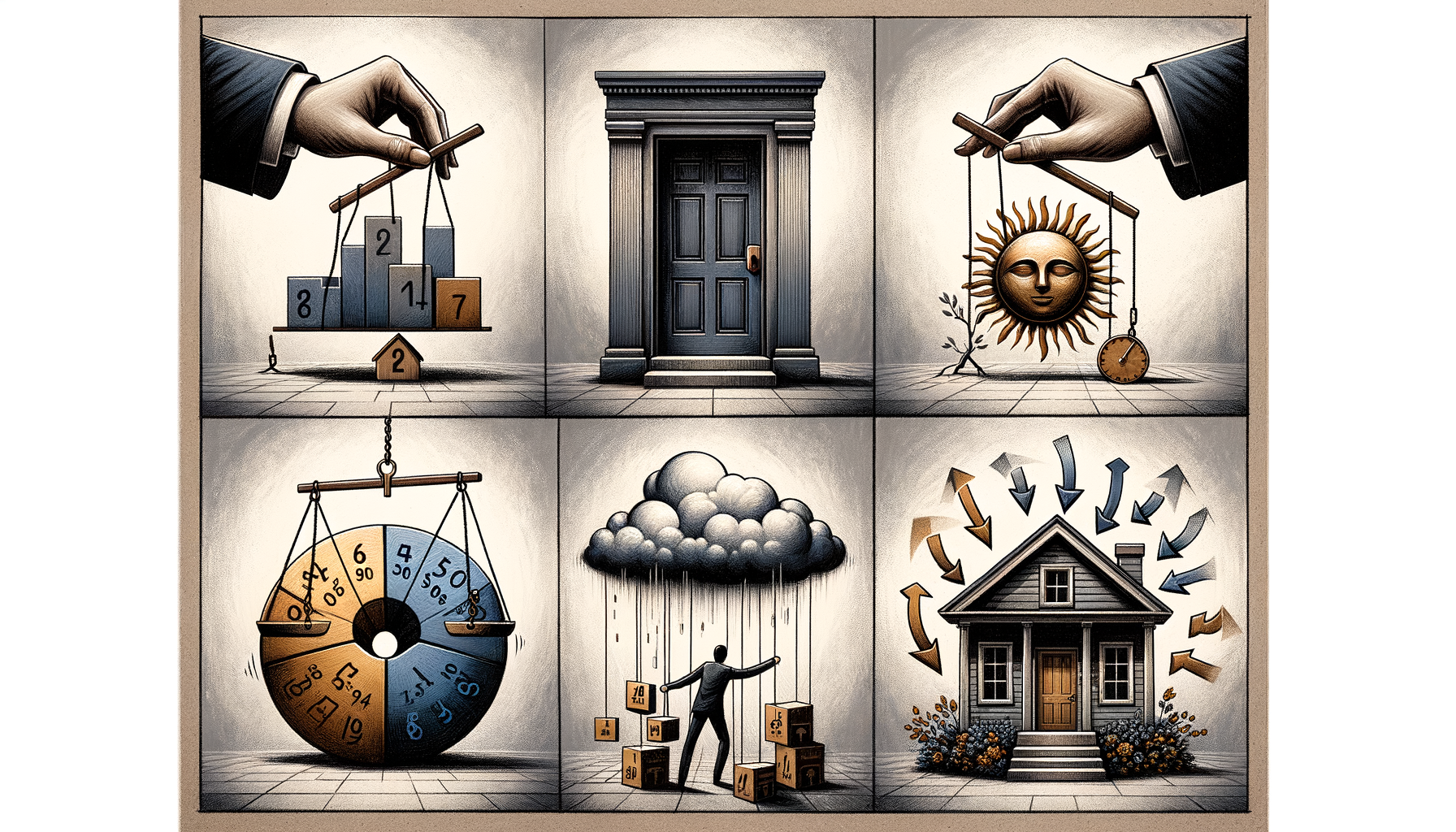“Understanding the Current Mortgage Rate Environment: An Analytical Perspective”
### Understanding the Current Mortgage Rate Trends
In the constantly fluctuating world of finance, understanding mortgage rates is crucial for anyone looking to buy a home or refinance their mortgage. Recently, there has been noteworthy activity in mortgage rates, driven by economic forces and policy decisions. Let’s delve into these trends, their underlying causes, and what they might mean for prospective homebuyers and homeowners looking to refinance.
#### The Landscape of Current Mortgage Rates
Mortgage rates have been experiencing a rollercoaster ride over recent years, influenced largely by economic indicators and monetary policies. After witnessing historically low rates due to the economic impacts of the global health crisis, we are now seeing a gradual increase as the economy begins to stabilize and recover.
The rise in mortgage rates can be attributed to several factors including inflation pressures, changes in Federal Reserve policies, and other global economic developments. When inflation is high, mortgage rates typically rise. This is because lenders need higher rates to compensate for the decreased purchasing power of the money they will be repaid with.
#### The Federal Reserve’s Influence
A primary driving force behind the changes in mortgage rates is the Federal Reserve’s monetary policy adjustments. The Federal Reserve often adjusts interest rates to manage economic growth and inflation. When the Fed raises its benchmark interest rates, mortgage rates tend to follow suit. This is part of a broader effort to control inflation without stifling economic growth.
Recently, the Federal Reserve has hinted at maintaining a more aggressive stance on interest rates to combat heightened inflation levels. These policy shifts often lead lenders to increase their rates for borrowers, reflecting the heightened costs of lending.
#### Economic Indicators and Mortgage Rates
Besides Federal Reserve policies, other economic indicators influence mortgage rates. Key among them is the employment rate. Strong employment data usually leads to higher mortgage rates. When more people are employed and incomes are rising, demand for home purchases tends to increase, pushing up home prices and mortgage rates.
On the global front, events that cause financial instability often lead to lower mortgage rates. This is because investors seek safer assets during times of uncertainty, often flocking to treasury bonds, which can push yields down and with them, mortgage rates.
#### The Impact of Bond Markets
Mortgage rates are closely linked to the movements in the bond market, particularly the yields on 10-year U.S. Treasury bonds. Lenders use these yields as a benchmark for setting the rates on mortgages. When bond yields rise, mortgage rates generally rise too. This is because as yields on bonds increase, the return expected on investments like mortgages also increases, leading lenders to charge higher rates.
In current times, bond market trends have been particularly volatile, reflecting broader uncertainties in the economy, including those related to geopolitical tensions and economic recoveries post-pandemic.
#### What Does This Mean for You?
##### If You Are Looking to Buy a Home
For prospective homebuyers, the increase in mortgage rates means higher monthly payments and more expensive loans overall. It’s important to evaluate your buying capabilities and perhaps consider locking in a rate if you find something reasonable, as rates might increase further depending on economic developments.
##### If You’re Considering Refinancing
For those thinking about refinancing, the decision is a bit complex. With rising rates, the window for securing a lower rate than what you might currently have is narrowing. Assess the break-even point in your refinancing plan – that is, how long it will take for the savings from the lower rate to exceed the costs involved in refinancing.
#### Long-Term Perspectives
Looking ahead, experts have varied opinions on the trajectory of mortgage rates. Some predict continued increases as the economy seeks to stabilize post-pandemic, while others see potential for rates to stabilize or even drop slightly, depending on developments like government spending and international economic conditions.
It’s also important to consider that while mortgage rates are an essential factor, they aren’t the only one to consider when buying a home. Real estate market conditions, your financial stability, and personal circumstances should all play into your decision-making process.
#### Tips for Navigating Higher Mortgage Rates
1. **Budget Wisely**: Calculate your budget with higher rates in mind. Ensure you can manage the monthly payments even if rates increase slightly after you buy.
2. **Improve Your Credit Score**: A higher credit score can help you secure better mortgage terms, even in a high-rate environment.
3. **Consider Different Mortgage Types**: Fixed-rate mortgages offer security against rising rates, while adjustable-rate mortgages might offer lower initial rates.
4. **Shop Around**: Don’t just accept the first mortgage offer you get. Compare rates and terms from multiple lenders.
5. **Consider Points**: Buying points can lower your interest rate in exchange for paying more upfront. This can be a wise investment if you plan to stay in your home for a long time.
#### Conclusion
Navigating the world of mortgage rates can be daunting, but understanding the factors that influence these rates can help you make informed decisions. Whether you’re looking to buy a new home or refinance your existing one, keeping a close eye on the economic indicators and mortgage rate trends will empower you to time your decisions effectively. Essentials like budgeting cautiously, improving your financial health, and comparing multiple mortgage offers remain crucial strategies in achieving favorable outcomes in your home financing journey.

